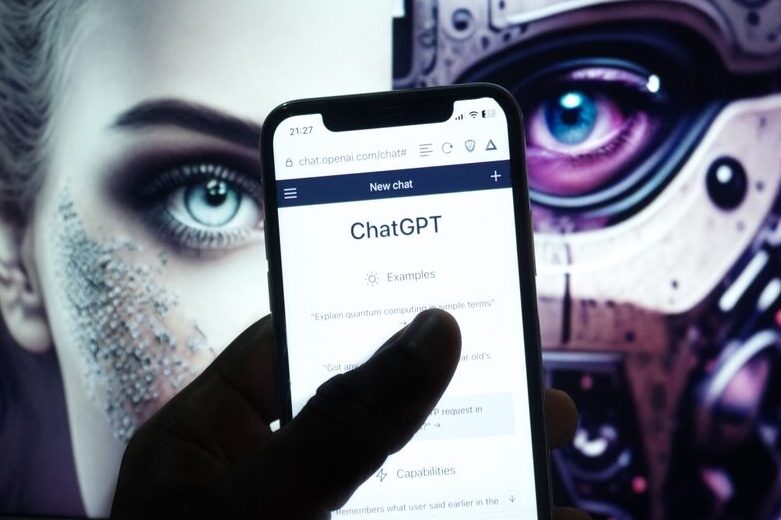
On November 30th, 2022, Open AI launched ChatGPT. Within the first five days, over one million users flocked to the tool, moving artificial intelligence (AI) from a futuristic idea to a mainstream reality.
Over the past 12 months, ChatGPT has changed the technology landscape as we know it. As the first inflection point of AI into public adoption, the technology has cultivated equal measures of fear and excitement. Many businesses have been quick off the mark, embracing the technology and finding new ways to innovate. However, earnest concerns have also materialised around ChatGPT’s potential to replace jobs, spur cybercrime and spread disinformation.
“The introduction of ChatGPT made it abundantly clear that AI will change lives,” starts Hana Rizvic, Head of AI at Intellias. “Generative AI has deservedly won the title of a transformative agent, not only opening doors to rapid innovation but also helping to start conversations with customers and increasing competitiveness within industries. Organisations have been making clear investments into AI already – witnessing its potential to power people in all departments – enabling better productivity and performance and improving processes to better profit the company.”
Mark Wilson, Technology and Innovation Director at Node4, agrees: “ChatGPT’s main impact in 2023 has been on driving a conversation around generative AI, and demonstrating the potential that this technology has to make truly impactful change. It’s certainly stoked a lot of interest in a lot of sectors and is clearly right at the top of the hype curve right now.”
While only in its infancy, it’s already a concrete part of business strategies around the world. The impact has been felt in every industry, with artificial intelligence even being awarded Collins’ ‘word of the year’ for 2023.
Beware of bias
2023 is the year that everyone will remember the arrival of a potentially world-changing technology. However, it also leaves cause for concern. Skip Levens, Marketing Director for Media & Entertainment at Quantum, warns that with all the excitement, “we should also remember that these are tools that are only as good as the data that goes into their training – and how they are used in the hands of creatives. Out of the box, these tools are not infallible, and you shouldn’t treat them as such.”
Users need to be acutely aware of generative AI’s limitations, Matt Rider, VP of Security Engineering EMEA at Exabeam, agrees. “For a start, they’re not accurate: GPT-4 Turbo has the most up-to-date data since its inception, but still only contains world knowledge up to April 2023. These systems also hallucinate and have a clear tendency to deliver biased responses. In fact, numerous reports have demonstrated these tools’ ability to be sexist, racist, or just generally discriminatory. Rubbish in, rubbish out. To stay safe navigating these models, we need to be much more sceptical with the data we are given. Employees need in-depth training to keep them up to date with the security risks posed by generative AI and also what its limitations are.”
In order to make the most of AI’s vast potential without falling foul of its current limitations, Gary Lynam, Managing Director, EMEA at Protecht, suggests, “organisations must build risk and compliance capabilities within teams to ensure the AI operating models and outcomes are fully understood and avoid any bias. Ensuring that rigorous validation, testing, and audit processes are in place along with continuous monitoring is vital.”




Job stealer or enabler?
Over the past year, fears have also emerged that tools like ChatGPT could expose hundreds of millions of white collar jobs as it supercharges productivity. At the AI Safety Summit, Elon Musk made claims that “there will come a point where no job is needed,” heralding the start of the robot revolution. These fears are echoed by one third (32%) of working adults who are worried the technology could put their job at risk.
However, Russell Gammon, Chief Solutions Officer at Tax Systems, believes otherwise. “People don’t want to buy from or interact with soulless robots, they want the human touch, so all industries will continue to need people. Implementing generative AI is about automating processes to enhance human roles, not removing them. In finance and accounting, this means that professionals no longer have to collect and analyse the data points, they can simply review the outcomes and apply their tax knowledge to the data set. By taking over mundane admin tasks, junior team members can take on higher value roles straight out of university – roles that they have studied and trained to do.”
“Whilst there are some concerns around the pace of change and the potential for job loss, these discussions have been happening with every innovation since the industrial age,” adds Murali Sastry, SVP of Engineering and AI at Skillsoft. He believes that the actual risk comes from not embracing change.
“Business leaders should invest efforts into developing agile learners who can evolve with the technology. As AI continues to transform industries, soft skills such as change management and critical thinking will be highly sought after. And whilst there is a role for regulation, the focus should be on how people can take advantage of new opportunities brought about by AI.”
For good or bad, now generative AI has become part of our daily reality, it is set to stay. “The impact of ChatGPT on workers and the economy as a whole is far-reaching and continues to evolve,” concludes Node4’s Mark Wilson. “Even the usage of the word ‘Copilot’ is interesting as it shows how big tech is positioning this technology as empowering users to do more, rather than being used to displace jobs. 2023 was just the start – we are still only getting started on an exciting journey.”





